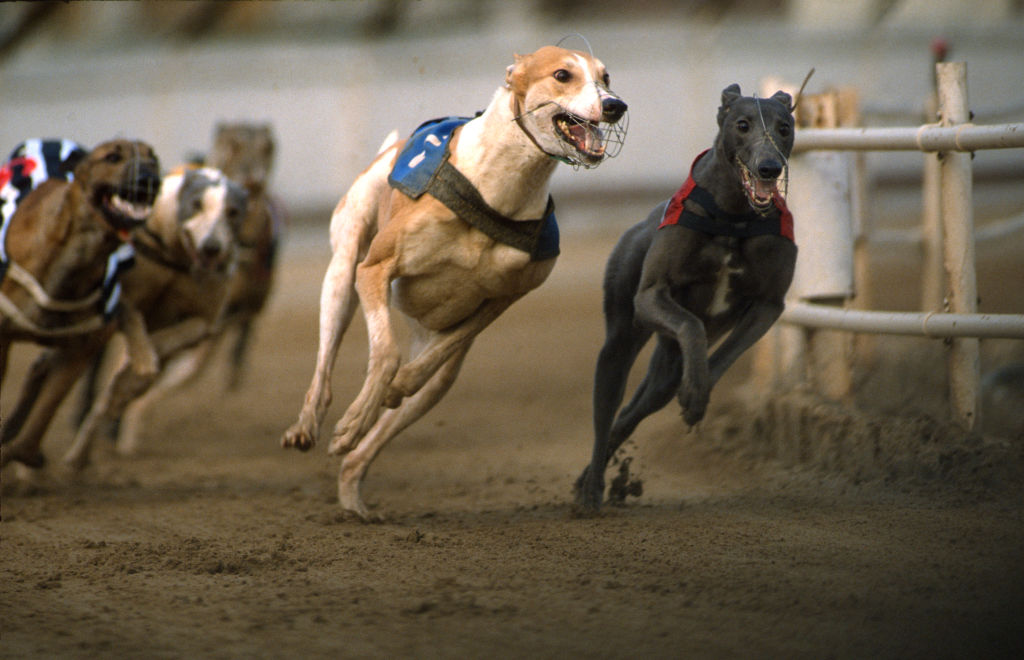I feel strangely and disproportionately elated when Number 2 dog, Ballyblack Bess, powers home strongly to win the 20.03 race. It’s a Monday evening in January in the greyhound stadium in Blackbird Leys, Oxford. I only won £9 but I’m pleased I came because an evening at the dogs is still great old-fashioned fun. The punters love it, as do the dogs, so it’s devastating that the RSPCA has demanded it be banned. They’ve teamed up with two other leading charities, the Dogs Trust and the Blue Cross, to request that it’s phased out over a five-year period.
But the RSPCA is – excuse the pun – barking up the wrong tree. The main objection to the sport was always about what happened to the dogs once their racing careers were over. But in 2020 a new Greyhound Retirement Scheme was introduced by the sport’s governing body, the Greyhound Board of Great Britain, whereby owners and the Board contribute £200 each to a bond which assists with homing costs. Contrary to the claims, there is a life after racing for these magnificent athletes and most of them are well looked after. In Oxford, retired greyhounds, looking very handsome in their smart jackets, are taken round the bars and restaurants to meet the public.
Another complaint was about racetrack safety. But national track fatalities have, according to industry figures, halved between 2018 and 2021 (from 0.06 per cent to 0.03 per cent). I’ve been racing five times since September and, having seen the best part of 50 races and 300-odd dogs competing, I can recall seeing only one greyhound limping after a race. Even when there are injuries, vets are always in attendance.
If the abolitionists do get their way, an important part of our sporting and cultural heritage will be lost.








Comments
Join the debate for just £1 a month
Be part of the conversation with other Spectator readers by getting your first three months for £3.
UNLOCK ACCESS Just £1 a monthAlready a subscriber? Log in